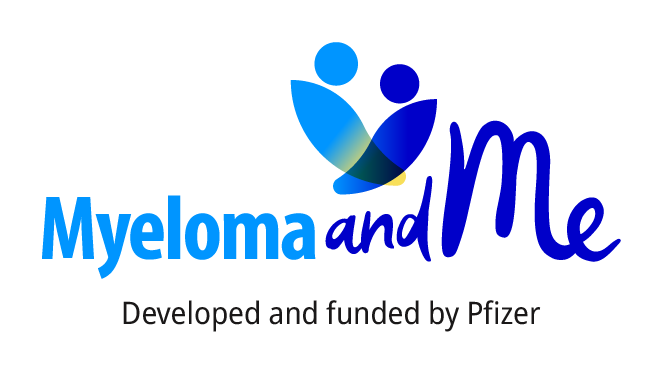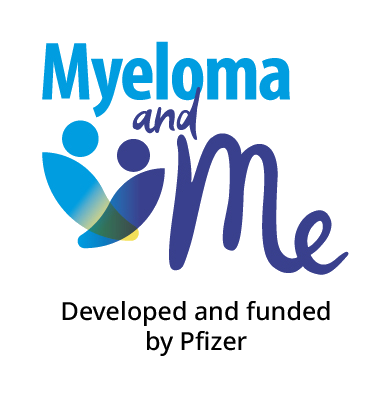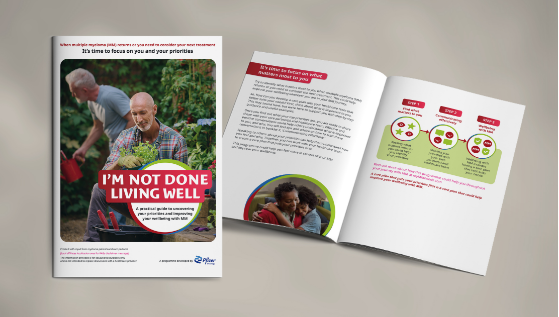I’m not done…
We know you’re not done with life’s pleasures or savouring special times, so we’re here to help.
This website offers a step-by-step guided programme to help you take control of your future and stay positive while living with MM. This could help you live your life on your terms to feel optimistic and motivated about what matters.
People with a clear idea of what they want from life are more likely to achieve their goals.2 These could be for things like treatment, lifestyle or wellbeing.
Your healthcare team also wants to hear from you3 to know what else to take into account, aside from their medical considerations.1 This ‘shared decision making’ will help you work together to find what’s best for you.4
This will help create a care plan suited to your individual priorities, values and preferences,1 not only the factors they would usually consider,3 for example:
- Spending time with family
- Receiving treatment in a certain way
- Continuing with your hobbies
An overview of the programme

You may have also heard multiple myeloma called RRMM, or relapsed refractory multiple myeloma.5 ‘Relapsed’ means when MM returns, and ‘refractory’ means when a treatment isn’t managing MM.6 Whatever you call it, and wherever you are in your journey, you can still aim to live well with RRMM.7
References
- Auclair D, et al. Patient Preference and Adherence. 2022:16;573–85.
- Moore C. How to set and achieve life goals the right way. Available at: https://positivepsychology.com/life-worth-living-setting-life-goals/ Accessed: May 2024.
- Fifer SJ, et al. BMC Cancer. 2020;20:546.
- Whitney RL, et al. Cancer Medicine. 2021;10:8040–8057.
- Chari A, et al. The Oncologist. 2019;24:1479–1487.
- Myeloma UK. Infopack for relapsed and/or refractory myeloma patients. Available at: https://www.myeloma.org.uk/documents/infopack-for-relapsed-and-or-refractory-myeloma-patients/ Accessed: May 2024.
- Shapiro YN, et al. Blood Cancer Journal. 2021;11:172 DOI: https://doi.org/10.1038/s41408-021-00560-x Accessed: May 2024.
- Grant RW, et al. Ann Fam Med. 2019;17:141–9.


